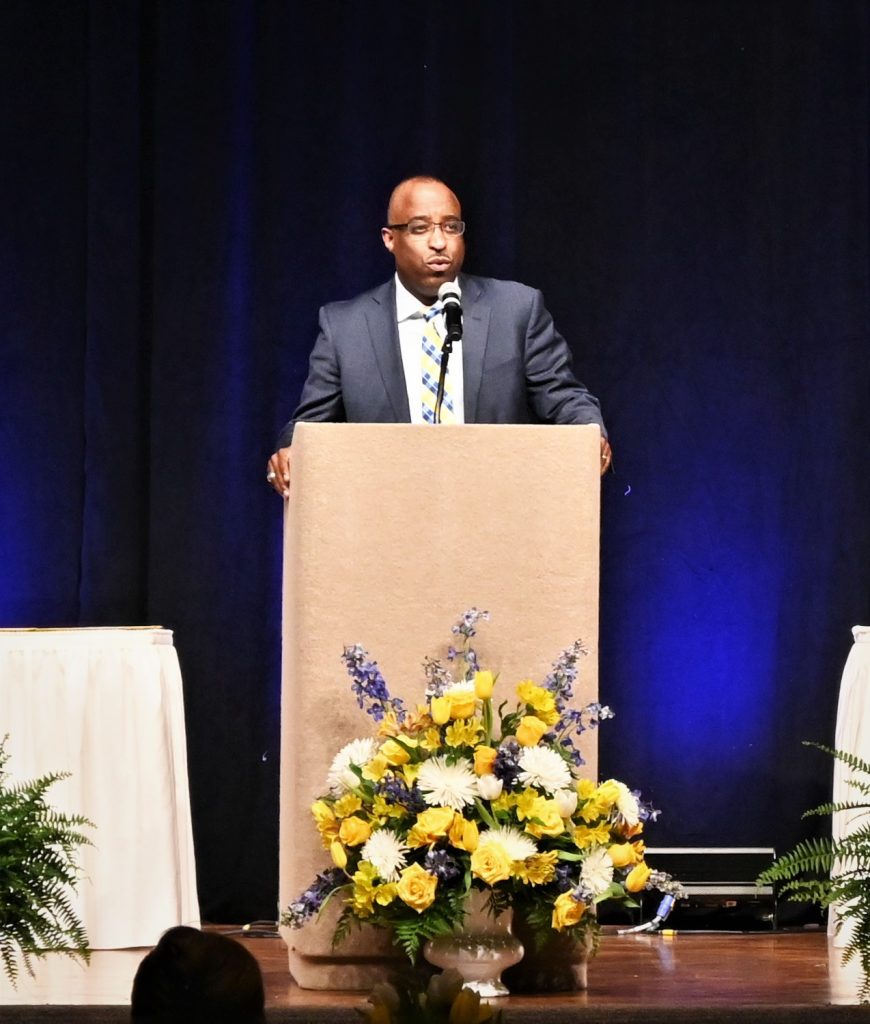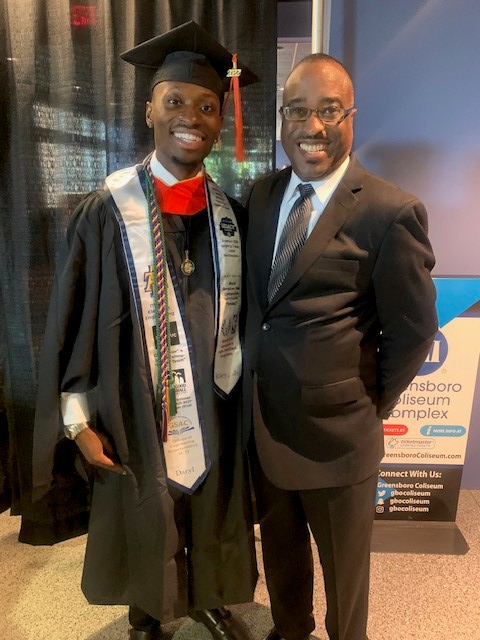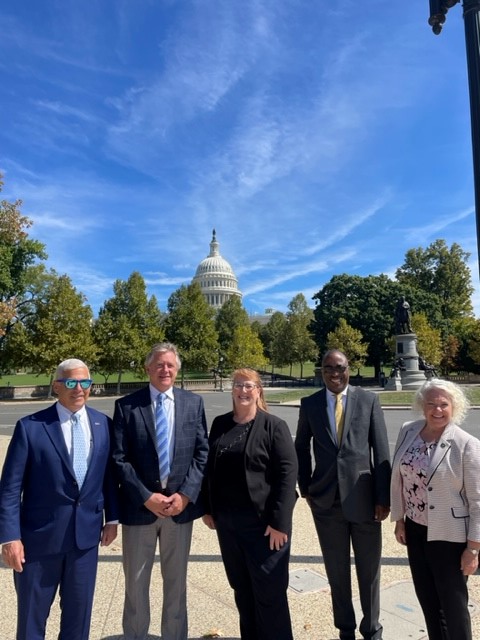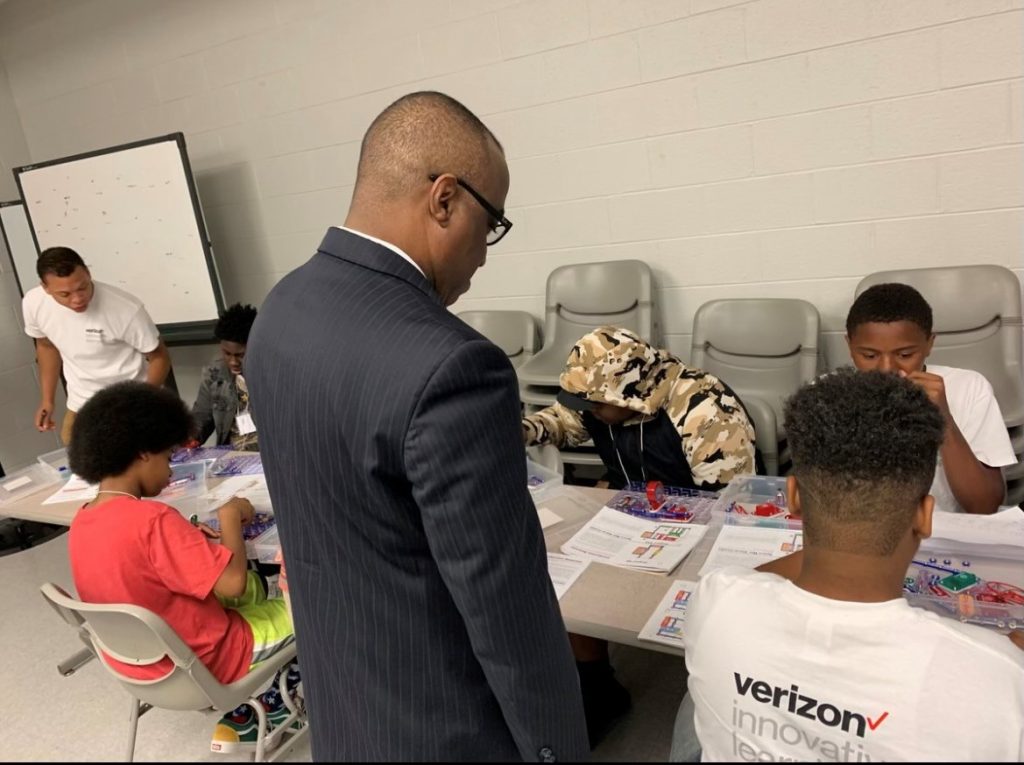Clay Gloster is looking out for the underdog. Throughout his career in academia, he has taken advantage of and created opportunities to ensure minorities are represented in the STEM fields and to ensure that graduates of engineering technology programs have opportunities to pursue careers as engineers. Now the vice provost of graduate research and dean of the graduate college at North Carolina Agricultural and Technical State University (A&T), Gloster continues to drive diversity within the STEM fields.
Gloster earned his doctorate in computer engineering at North Carolina State University and has since concentrated his research on reconfigurable computing. “I don’t think many minorities have opportunities to go on for doctorate degrees in engineering, so when I was given the opportunity, I took it,” he said. “I did it for not only myself, but for many other Black people who did not have the opportunity.”
Since then, Gloster has used his leadership positions to clear the path for current minority students looking to pursue a career in STEM. He has implemented degree programs at historically Black colleges and universities (HBCUs) and created opportunities to make it easier for future and current minority students to find an interest in STEM.
“Basically, in higher ed., we transform the lives of not only students, but their entire families,” Gloster said. “When you reach into a first-generation college student’s life and you offer them a career in engineering and they are successful, then not only are they successful, but their children have a better life and their children’s children, and so on and so forth.”
Taking Advantage of Opportunities
Gloster’s career began in electrical engineering when he took part in a cooperative program at the David Taylor Naval Ship Research and Development Center the summer after his junior year in high school. Students could experience the different engineering fields throughout their time in the co-op, switching each week to determine their interest in pursuing a specific engineering field as a career. Gloster was assigned to the electrical engineers his first week there, but upon finding an interest, he decided to stay throughout his co-op. “I didn’t leave,” Gloster said. “I just stayed with the electrical engineers.”
Participants of the co-op were able to continue to the pre-professional program while earning their undergraduate degree. According to Gloster, they had to be accepted to certain institutions, all of which were HBCUs. Once accepted to the institution, they were automatically accepted into the pre-professional program. Initially, the program was to pay for two years of its participants’ undergraduate degree, but Gloster said that changed to the entire four years when he was a sophomore. He chose A&T and earned a bachelor’s degree and master’s degree in electrical engineering.
Gloster always had plans for a career in academia rather than working in private industry because he appreciates the opportunity to work with an ever-changing, diverse group of people. “In the university environment you have people from all over the world, international students, international faculty who come in and you can interact with people from different walks of life all of the time,” Gloster said.
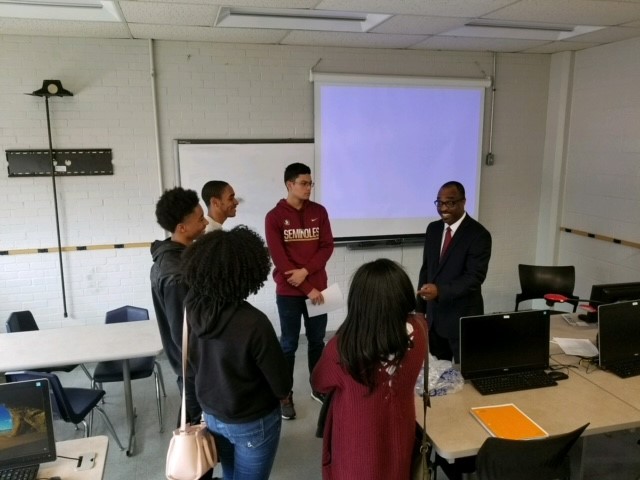
Creating Opportunities for Students
Gloster has created a degree program at both Howard University and A&T, both HBCUs. Howard University contacted Gloster to help them start a computer engineering program, a position he accepted in 2000. With Gloster as a leader, the team built the program from scratch, leading the program through to obtaining ABET accreditation.
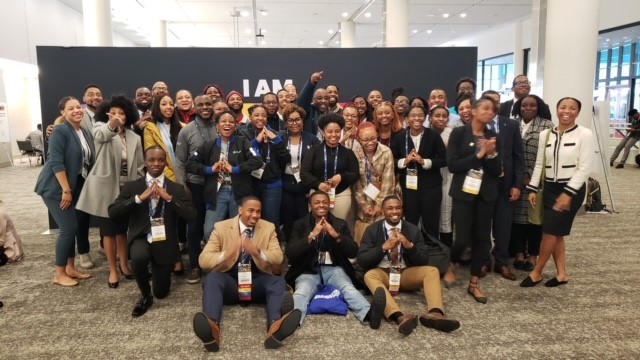
Gloster returned to A&T as a department chair in the School of Technology, where IBM donated a mainframe to the department, which they could use to start an information technology program, ultimately obtaining ABET accreditation. According to Gloster, the donation was a “catalyst” to start building the program. The team met resistance from the UNC System Board of Governors when the program was seeking its approval to begin the new program as they questioned the need for an IT program in mainframe, thinking it was outdated technology. Gloster, however, knew that many banks used mainframes to process ATM transactions and started listing banks the board members may have used to point out that they themselves have used mainframe technology.
“So many people are in their career to get paid, but to me, my most significant contributions have been to start those programs because I know that when any student gets a bachelor of science in computer engineering from Howard University, I had something to do with it,” Gloster said. “Any student who gets a bachelor of science degree in information technology from North Carolina A&T State University, I had something to do with it.”
Mentoring Others
Gloster enjoys his position as dean at the graduate college at A&T because it expands his reach and enables him to have a larger impact on a greater number of students. As dean, Gloster has also implemented programs and grants to increase the number of minorities pursuing STEM careers and receiving both undergraduate and graduate degrees. These programs allow him to mentor minorities at many levels.
For example, Gloster leads the Verizon Innovative Learning STEM Achievers Program at A&T. This program is for middle school students in under-resourced communities with a goal of creating a more diverse future STEM workforce. The program is three weeks long with options for both boys and girls to explore mobile app development, 3D printing, robotics, virtual reality and professional development in hopes that they will develop and retain an interest in STEM.
Over the past 30 years, Gloster has been a mentor to individuals in minority communities at all levels of academia, including junior faculty members. “I tell my students and mentees, ‘I don’t want you to be like me. I want you to be better than me’,” Gloster said. “I didn’t do everything the way I think I could have and so, my opportunity to pour into others is to make them be more then they think they can be.”
